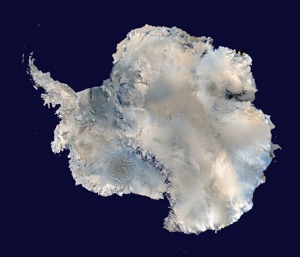'an inconvenient truth' is a documentary i desperately want to see. this documentary, presented by former american vice-president al gore, presents a startling wake-up call to politicians and citizens alike. we all know that global warming has always been a major issue, yet nobody (the politicians) has really made it a priority. hopefully, this documentary will change all that .. if not, we are all DOOMED!
[Excerpts from An Inconvenient Truth]:
If you look at the ten hottest years ever measured, they've all occurred in the last 14 years, and the hottest of all was 2005. Scientific consensus is that we are causing global warming.
This is Mt Kilimanjaro 30 years ago and last year. Within the decade there will be no more snows of Kilimanjaro.
This is really not a political issue so much as a moral issue. Temperature increases are taking place all over the world and that's causing stronger storms.
An Inconvenient Truth shows Al Gore presenting his show before an audience. Using startling pictures and scientific data, he delivers evidence of a warming Earth. Retreating glaciers are shown by way of old postcards. Glaciers in Switzerland, Peru, Argentina-everywhere really-now end hundreds of metres higher up than they did just a few decades ago. The pictures show it; glaciers are melting. Fast.
Graphs show the link between carbon dioxide and temperature. Gore paces up and down the stage, leading us through the last seven ice ages. The data, projected behind him, stretches back 650,000 years. Yes, there have been periods of warming in the past; they're indicated by little blips. When it comes to the present, the graph spikes upwards. In a most dramatic demonstration, Gore attempts to show the projections for the next 50 years. The graph runs up so high he can't reach it. The only way up is by riding a cantilevered platform. Up he goes, ten metres high, off the scale.
And we're feeling the heat today. Records are being broken all over the world. Ten of the hottest years on record were in the last 14. In 2003, heat in Europe killed 35,000 people. Typhoons are stronger and more frequent, powered by the warming ocean. Rainfall is changing. Lake Chad in Africa, once one of the largest lakes in the world, is almost dry. So what if the polar ice caps melt? Well, we'll get hotter even faster. The great expanses of ice act like a mirror reflecting 90% of incoming radiation. Replace ice by water and 90% of incoming radiation is absorbed.
In the forty years since the 70s, 40% of Arctic ice has melted. In under 70 years it will all be gone. And what about all this added fresh water in the North Atlantic? Well, things can change fast. And it's happened before. About 8,000 years ago, two vast freshwater lakes in central Canada burst and drained into the Hudson Straight, then into the North Atlantic. There was so much fresh water that water circulation in the North Atlantic stopped. Warm currents which normally travel north from the equator didn't arrive, and temperatures across Europe plummeted. This is the scenario in the film The Day After Tomorrow. Water melting from Arctic ice is thought to pose a similar threat.
At the other end of the globe we're taken on aerial swoops of Antarctic ice cliffs, 700 feet high, and they're falling away, crashing into the ocean. More photos show ice shelfs; there in the 70s, gone today. Powerful graphics show the devastation we can expect, as sea levels rise. Hundreds of millions of people, Gore says, will lose their land, especially in densely populated, low-lying Asian regions. We see how rising sea levels will affect the state of California. This goes some way to explaining the interest of the insurance industry in a warming planet.
And it all boils down to population pressure and how we treat the Earth. It took the whole history of human existence for the population to reach two billion back in the 1950s. Now it's grown to seven billion and will reach nine billion while many of those born in the 1950s are still alive. Two billion to nine billion in one lifetime. If nothing changes, there'll be even more carbon dioxide to come, spewed from the rear of cars, trucks, buses and planes, and from power stations burning coal to generate electricity. Gore says the technology exists to fix the problem. What's missing is political will. He equates the challenge ahead with other great victories from the past; the emancipation of slaves, equality for women, fascism in Europe, apartheid, the fight against smallpox, the nuclear arms race. All beaten. But will this be the challenge that beats us? There's a sense of melancholy. Early in the film Gore says he feels he's failed in getting the message across. He's been telling it for a long time.
Is it possible that we should prepare against other threats besides terrorists?

The Arctic is experiencing faster melting. If this were to go, sea level worldwide would go up 20 feet.
This is what would happen in Florida. Around Shanghai, home to 40 million people. The area around Calcutta, 60 million. Here's Manhattan; the World Trade Centre memorial would be under water. Think of the impact of a couple of hundred thousand refugees, and then imagine a hundred million.
We have to act together to solve this global crisis. Our ability to live is what is at stake.
scary, don't you think?! yet, nobody in power is taking it as serious as al gore. i wish he had won the u.s. election! sorry, but i think president bush is incapable and useless! we all know about the kyoto protocol - an international agreement by various countries to reduce the amount of carbon dioxide emissions - and we also know that the u.s. - the biggest emitter, is not a party - arguing that that the mandates will setback the u.s. economy. *sigh*, at this rate i think i should start planning my funeral! oh, but who is going to bury me if we are all dead?! =p
<'an inconvenient truth' will be released in cinemas nationwide on thursday 14th of september>


























